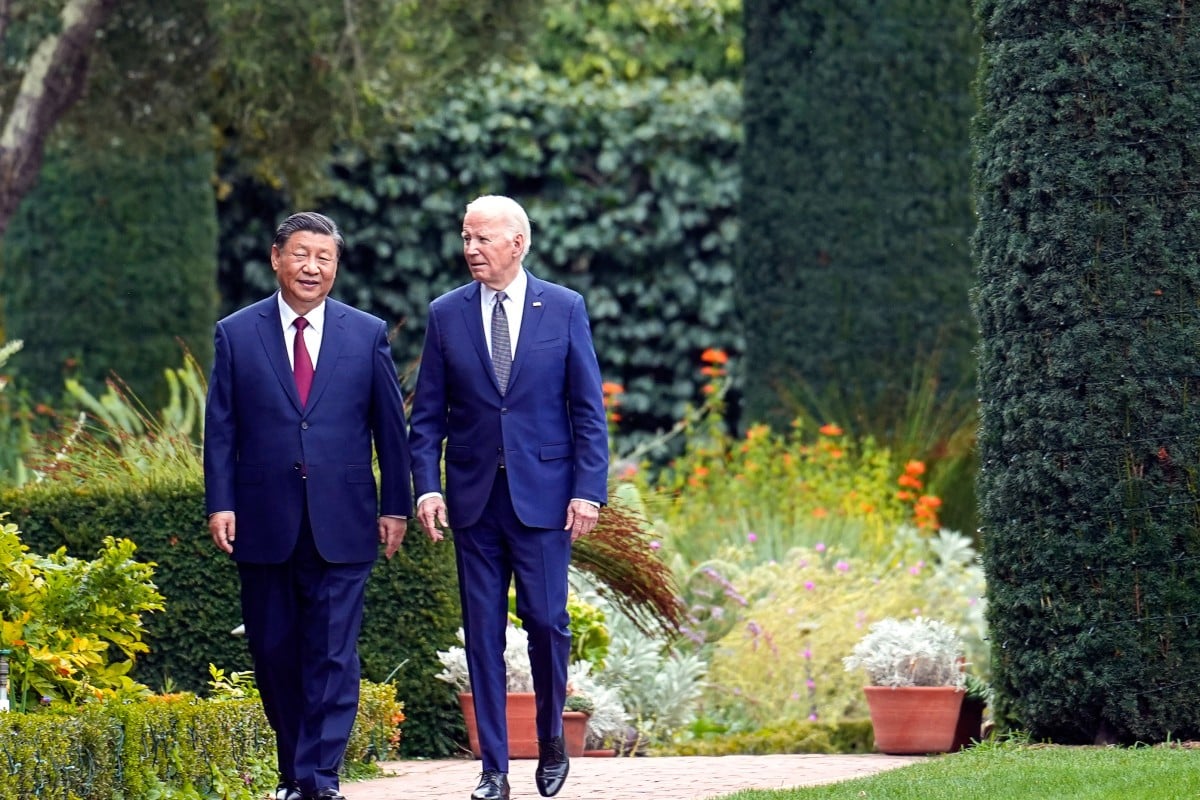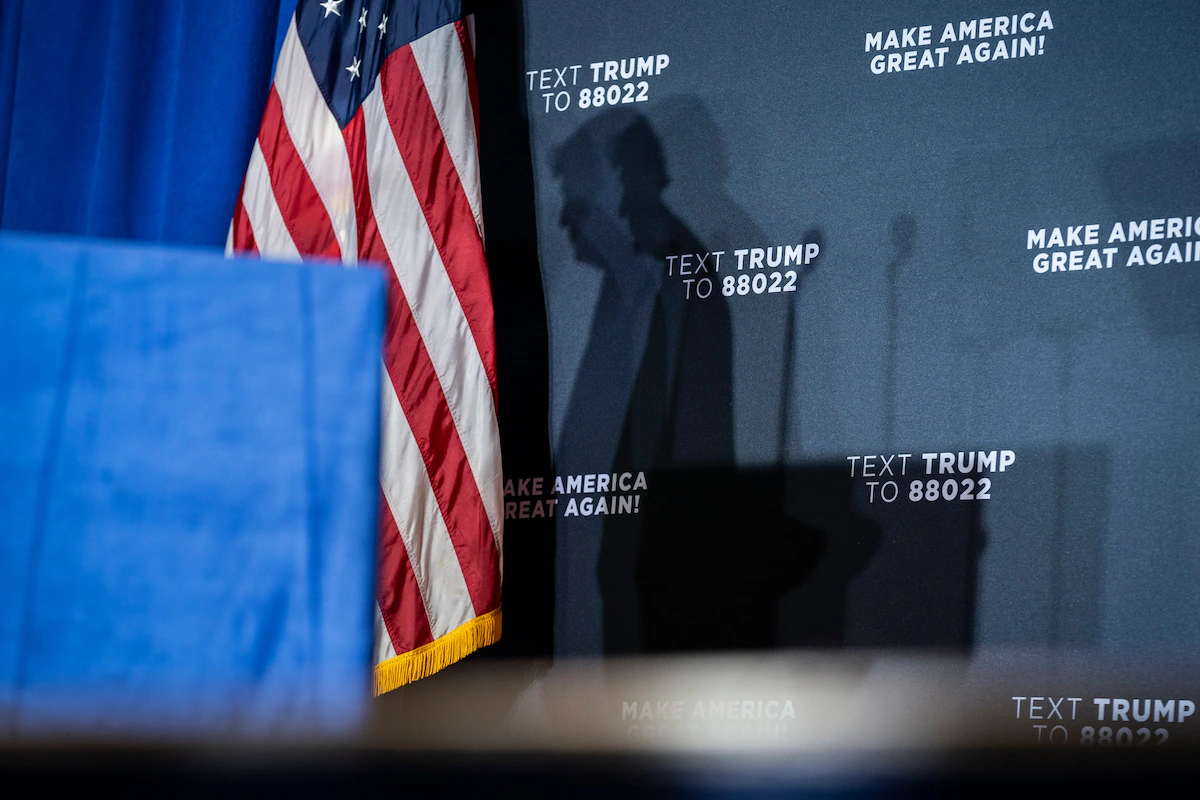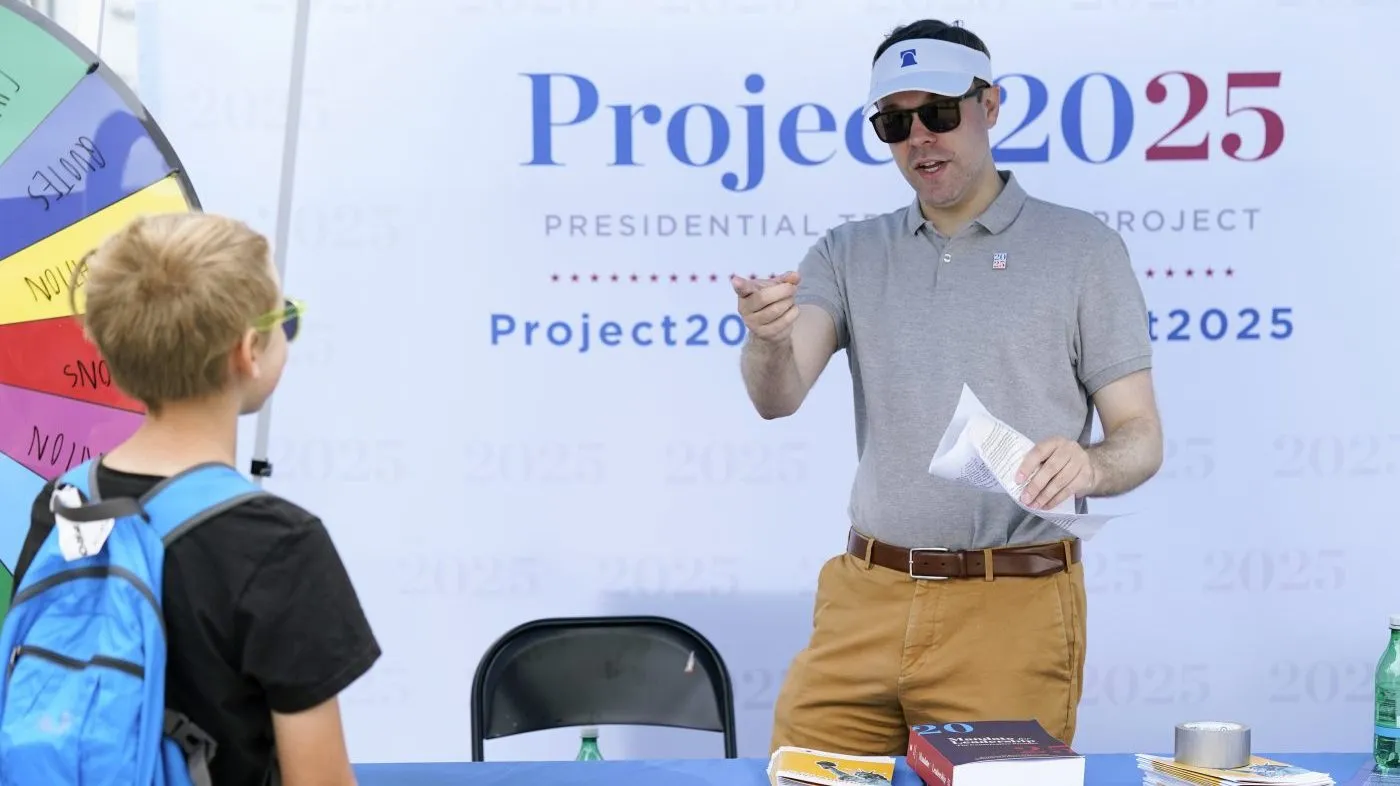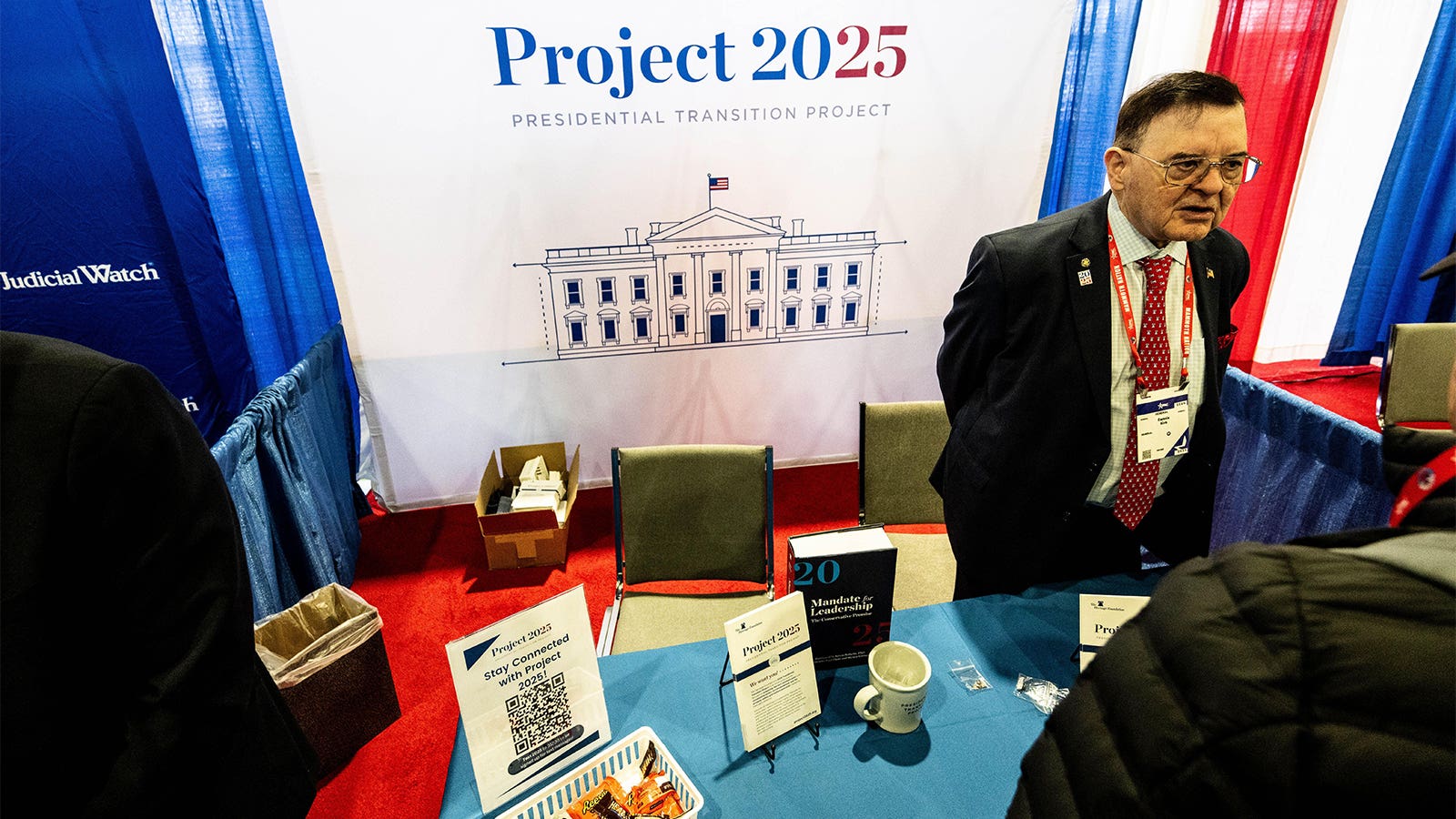Originally by at news.google.com
They also warn that Beijing will need to keep a cool head to avoid escalating bilateral hostilities, with the Project 2025 plan coming across as “shockingly malicious” against China.
Spearheaded by Washington-based conservative think tank The Heritage Foundation, Project 2025 proposes a radical political blueprint for a potential Republican government to follow, drawn up after consultation with more than 100 conservative groups.
Much of the controversy in the United States surrounding the plan has centered on the domestic policy recommendations in its nearly 900-page doorstopper manifesto titled, Mandate for Leadership: The Conservative Promise, which envisions a massive reshaping of the federal government “to abolish the Deep State”.
The word “China” appears 483 times in the document – albeit including endnotes – across a spectrum of areas like defense, trade and technology.
Yun Sun, director of the China program at the Washington-based think tank Stimson Centre, said the policy position on Beijing was clear: “China is a threat, not a competitor”.
“China is a threat not just because of the CCP [Chinese Communist Party], but also because of its history and culture,” she said.
Unlike the existing “compete where we must and cooperate where we can” approach advocated by US Secretary of State Antony Blinken, the document called for the US to be unambiguous and pursue a cost-imposing strategy, Sun said.
“If Trump is re-elected, the US policy on China will be tougher. This is one iteration, but other iterations are no more friendly on China either,” she said. “China should have a sober understanding that things will become worse.”
Both Project 2025 and the recently adopted 2024 Republican Party platform see suppressing China as an important way to acquire new industrial development and consolidate American supremacy, according to Zhu Feng, a Nanjing University professor who specializes in US-China relations.
“For China, I think we do need to be well prepared,” he said.
The 2024 Republican Party platform, which was formally adopted last week for Trump’s third White House run, voiced a commitment to “secure strategic independence from China” and to “countering China” through strength – echoing calls in Project 2025’s policy book.
The book is one of Project 2025’s four pillars, which also include a database of personnel who could serve in the next administration, a training program for that pool of candidates and a playbook of actions to be taken within the first 180 days in office.
But it also outlines a lot of its planned foreign policy.
“China is a totalitarian enemy of the United States, not a strategic partner or fair competitor,” Kevin Roberts, president of The Heritage Foundation, wrote in the foreword.
“Unfettered trade with China has been a catastrophe.
“American factories have closed. Jobs have been outsourced. Our manufacturing economy has been financialised. And all along, the corporations profiting failed to export our values of human rights and freedom; rather, they imported China’s anti-American values into their C-suites [executive-level company management].”
Beijing sees Taiwan as part of China to be reunited by force if necessary, and most countries do not recognize Taiwan as an independent state. These include the US, though it is opposed to any forcible change to the status quo and is bound by law to provide arms to Taiwan for its defense.
Li Cheng, former head of the Washington-based Brookings Institution’s John L. Thornton China Centre, characterized Project 2025 as “very relevant”, saying it reflected the Republican base establishment.
“They hold very hawkish views of China,” said Li, who is also founding director of the University of Hong Kong’s Centre on Contemporary China and the World.
“It is right to be concerned about the hawkish Republican. But it’s jumping to conclusions to say they are determined to fight with China,” he said, adding that there are still differences within the Republican Party on the best strategy for dealing with Beijing.
Peter Navarro, a former Trump adviser who pushed the trade war between the world’s two largest economies, argued that the US should “decouple” its economy from China’s.

Project 2025’s overall tone towards China was “shockingly malicious”, said Hu Xijin, an outspoken former editor-in-chief of nationalist tabloid Global Times, a newspaper affiliated with Communist Party mouthpiece People’s Daily.
But he questioned how much and how soon the mandate might affect America’s actual China policy.
“It remains uncertain whether Trump can become president again. Even if he gets the chance to reclaim the White House, he will have to prioritize … Obviously, no American politician would dare to bear the serious consequences of abruptly severing China-US economic ties,” he posted on Chinese microblogging platform Weibo last Thursday.
“Imagine what a world-shaking event it would be if Tesla were to be stopped from doing business in China and Apple were to be forced to leave the Chinese market.”
Although the Project 2025 publication was released more than a year ago in April 2023, it has only become an apparent lightning rod for Democratic lambasting in recent months as Trump extended his polling lead.
At least 140 people who worked for the Trump administration were found to have had a hand in it, scuppering his efforts to distance himself from the project which has been framed as a blueprint for what a second term in office could look like for him.
“We need to maintain full strategic sobriety and focus,” Hu said.
“That means we must always have plans in place for worst-case scenarios and prepare for the worst. At the same time, we must not be led by the nose by the agitation of extreme American political elites, nor should we cooperate with them in escalating mutual hostility between China and the US.”
He argued that a true Cold War between the two powers would go against the times though the US-China bilateral relationship was likely to continue to deteriorate.
“[Project 2025’s] numerous proposals targeting China are unlikely to automatically become the real drums and trumpets of the US war against China,” he said.
Read the Original Story





